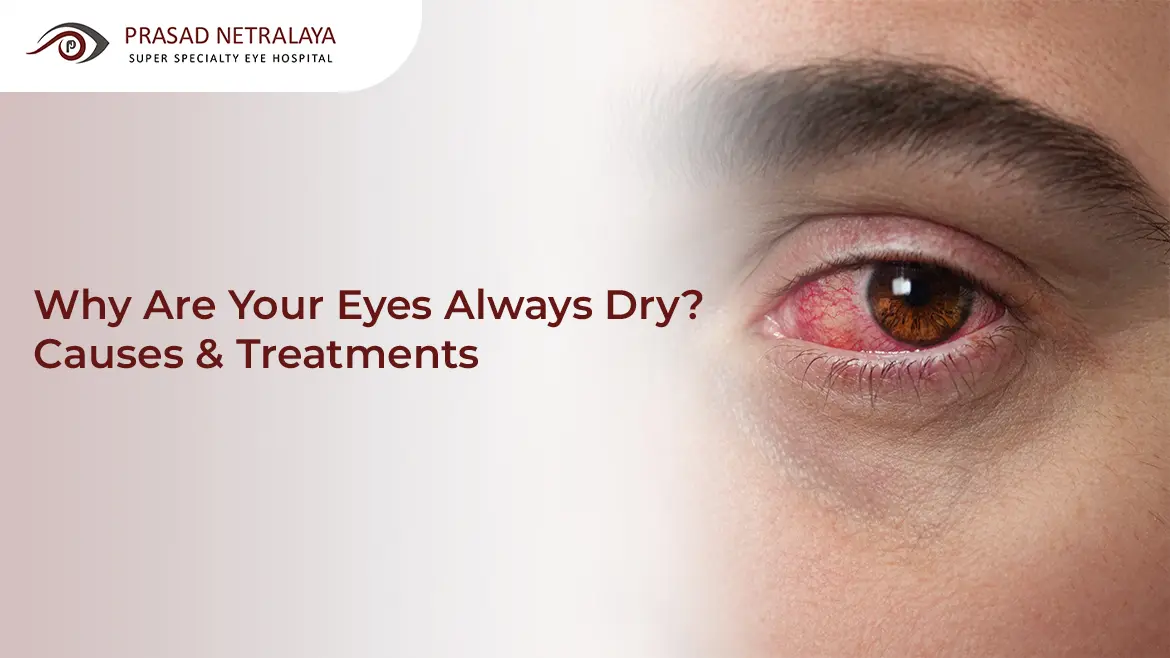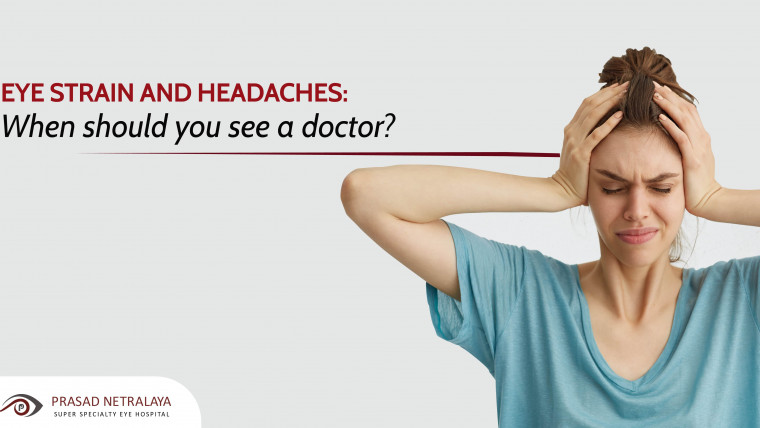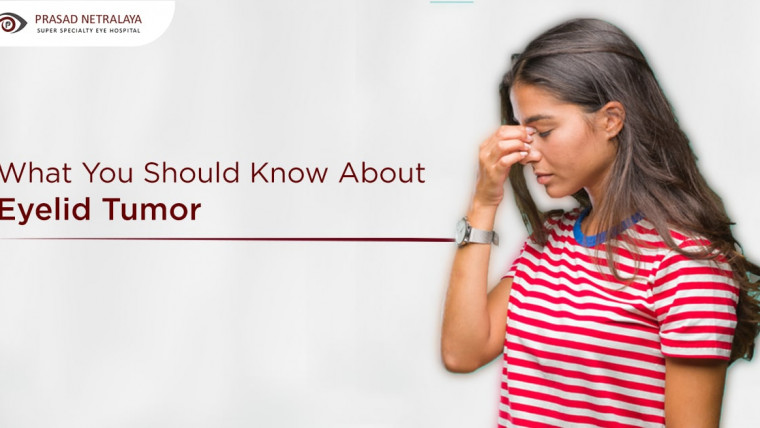Do your eyes often feel itchy, gritty, or as if there’s sand trapped inside them? You’re not alone. Dry eye disease is far more common than many realize.
In fact, a recent study from North India revealed that nearly one in three people suffer from dry eye disease (DED), and among those, nearly 81% reported their symptoms as severe. This highlights how widespread and impactful the condition truly is. Untreated, it doesn’t just cause discomfort—it can also affect daily productivity, focus, and long-term eye health. The good news? With the right Dry Eyes Treatment, lasting relief and healthier vision are within reach.
In this blog, we’ll explore why your eyes may always feel dry, uncover the hidden triggers, highlight the best treatment options, and share practical steps to help you regain lasting comfort and clarity.
Table of Contents
Understanding Dry Eye Syndrome
Dry eye syndrome occurs when your eyes don’t produce enough quality tears or when tears evaporate too quickly. Tears are essential for maintaining moisture, providing nutrients, and protecting the eye surface. Without proper lubrication, the eyes become vulnerable to irritation, redness, and blurred vision.
Causes of Dry Eyes
There are several underlying causes of dry eyes, and knowing them is the first step toward effective treatment.
Environmental and Lifestyle Triggers
- Prolonged screen time (reduced blinking while using digital devices)
- Dry, windy, or air-conditioned environments
- Smoking and alcohol consumption
- Laser eye surgeries such as LASIK or ICL, which may temporarily affect tear production
Medical and Age-Related Factors
- Natural aging (especially after age 50)
- Hormonal changes like menopause, which affect tear production
- Side effects of certain drugs such as antihistamines, antidepressants, or blood pressure medications
- Autoimmune conditions like Sjögren’s syndrome, rheumatoid arthritis, or lupus
- Diabetes and other systemic diseases that reduce tear production
- Tear gland damage caused by inflammation or injury
Understanding these causes of dry eyes helps your eye specialist recommend the right treatment for your unique situation.
For more information on dry eye treatments, read our guide: Dry Eyes: Symptoms, Treatment & Prevention.
Effective Dry Eyes Treatment Options
1. Eye Lubrication Treatment
The most common first step in eye lubrication treatment is using artificial tears or medicated eye drops to restore moisture and reduce irritation.
2. Advanced Medical Treatments
- Prescription eye drops to reduce inflammation and improve tear production.
- Punctal plugs to block tear drainage and keep eyes naturally moist.
- Light or heat-based therapies to improve oil gland function in the eyelids.
3. Lifestyle and Preventive Measures
- Following the 20-20-20 rule during screen use.
- Using humidifiers in dry indoor spaces.
- Wearing wraparound glasses outdoors to reduce evaporation.
With the right Dry Eyes Treatment, patients can regain comfort, protect vision, and improve overall quality of life.
Also, read: Frequently Asked Questions About Eye Dryness
Why Timely Treatment Matters?
Ignoring persistent dryness may worsen the condition and lead to corneal damage or vision problems. Consulting an expert early ensures accurate diagnosis and targeted care tailored to your eye health.
Conclusion: Choose Expert Care for Lasting Relief
If your eyes always feel dry, irritated, or uncomfortable, don’t ignore the signs. Professional care can make all the difference. For specialized Dry Eyes Treatment, Prasad Netralaya is the most trusted destination. With experienced specialists, advanced technology, and personalized care, they ensure the right treatment for every patient.
Don’t let dry eyes affect your daily life—book your consultation at Prasad Netralaya today and experience clear, comfortable vision like never before!
Frequently Asked Questions (FAQs)
1. What causes constant dryness in the eyes, and how can Dry Eye Treatments help?
Dry eyes may result from aging, screen time, allergies, or medical conditions. Effective Dry Eye Treatments address the root cause to restore comfort and moisture.
2. Are Dry Eye Treatments different for mild and severe cases?
Yes, Dry Eye Treatments are customized. Mild cases may need lifestyle changes and lubricating drops, while severe cases often require advanced therapies or procedures.
3. Can lifestyle changes enhance the effectiveness of Dry Eye Treatments?
Absolutely. Along with Dry Eye Treatments, reducing screen time, using humidifiers, and maintaining hydration can significantly improve long-term results.
4. How quickly can I see results from Dry Eye Treatments?
The timeline varies. Some patients feel relief within days of starting Dry Eye Treatments, while others may need weeks of consistent care for noticeable improvement.
5. Are Dry Eye Treatments safe for people who wear contact lenses?
Yes, specialized Dry Eye Treatments are available for contact lens wearers. Doctors often recommend preservative-free lubricants and advanced therapies for safe relief.
Dr. Vikram Jain, M.S. had his medical training (MBBS) from Kasturba Medical College, Mangalore, India. He did his master’s in Ophthalmic surgery from Kasturba Medical College, Manipal. He currently manages the Glaucoma department of Prasad Netralaya hospital.



